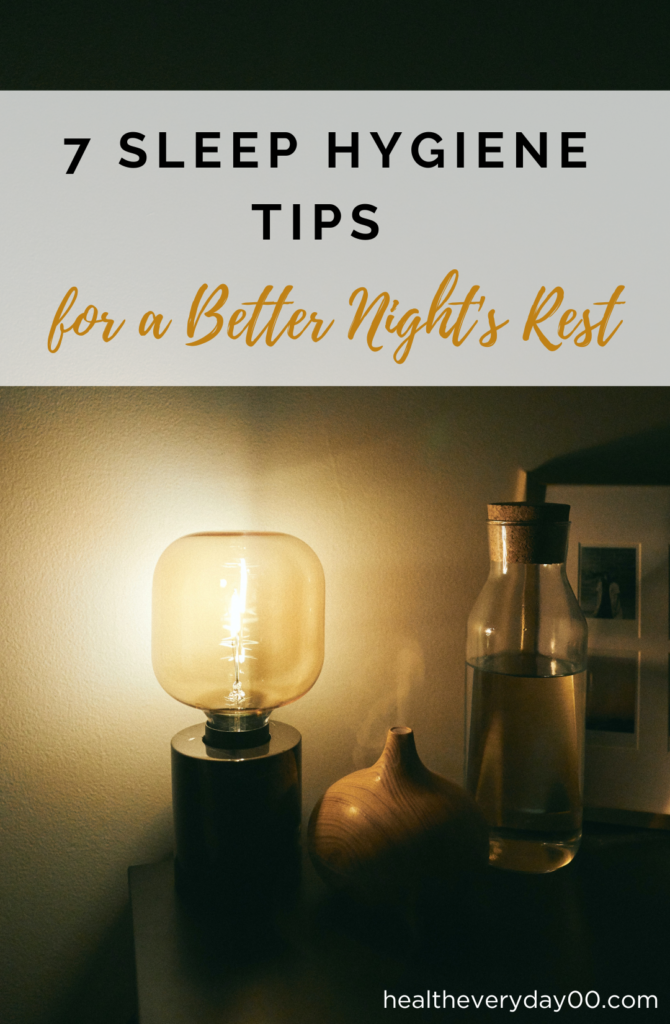7 Sleep Hygiene Tips for a Better Night’s Rest

Introduction
Sleep is a vital component of our well-being, impacting our physical health, mental clarity, and overall productivity. Sleep hygiene refers to a set of practices and habits that promote healthy sleep patterns. In this guide, we’ll delve into seven effective sleep hygiene tips that can transform your nightly rest and significantly enhance the quality of your sleep.
Understanding Sleep Hygiene
Maintaining proper sleep hygiene involves several key aspects that contribute to a restful night’s sleep. Let’s explore these essential factors:
Creating a Relaxing Sleep Environment
The environment in which you sleep plays a pivotal role in the quality of your sleep. Consider the following tips:
- Keep your bedroom dark, quiet, and at a comfortable temperature.
- Invest in a quality mattress and pillows for optimal comfort.
- Minimize electronic devices to reduce distractions and promote relaxation.
Establishing a Consistent Sleep Schedule
Consistency in your sleep routine is crucial for regulating your body’s internal clock. Follow these steps:
- Set a regular bedtime and wake-up time, even on weekends.
- Create a relaxing pre-sleep routine to signal to your body that it’s time to wind down.
Lifestyle Adjustments for Better Sleep
Adopting certain lifestyle changes can significantly impact the quality of your sleep. Here are some key adjustments to consider:
Managing Stress and Anxiety
Stress and anxiety can significantly interfere with your sleep. Try these strategies:
- Practice stress-relieving activities such as yoga, meditation, or deep breathing exercises.
- Consider journaling or talking to a friend or therapist about your worries.
Limiting Stimulants Before Bed
Certain substances can disrupt your sleep. Consider these tips:
- Avoid caffeine, nicotine, and heavy meals close to bedtime.
- Limit fluid intake in the evening to prevent disruptive trips to the bathroom.
Developing Healthy Bedtime Routines
Incorporating healthy bedtime routines can prepare your body for a restful night’s sleep. Try these activities:
Unwinding Techniques
Various relaxing techniques can signal to your body that it’s time to wind down:
Mindfulness and Meditation
Engage in mindfulness or meditation practices to calm the mind and relax the body.
Reading or Listening to Soothing Music
Reading a book or listening to calming music can help your mind relax before sleep.
Importance of Regular Exercise
Regular physical activity positively impacts sleep quality. Consider these suggestions:
- Engage in moderate exercise, such as walking or yoga, during the day.
- Avoid intense workouts close to bedtime.
Conclusion
Enhancing your sleep hygiene involves a multifaceted approach that encompasses creating a tranquil sleep environment, establishing consistent sleep schedules, making lifestyle adjustments, and developing healthy bedtime routines. By incorporating these 7 sleep hygiene tips, you can significantly improve the quality of your sleep and wake up feeling refreshed and revitalized.



